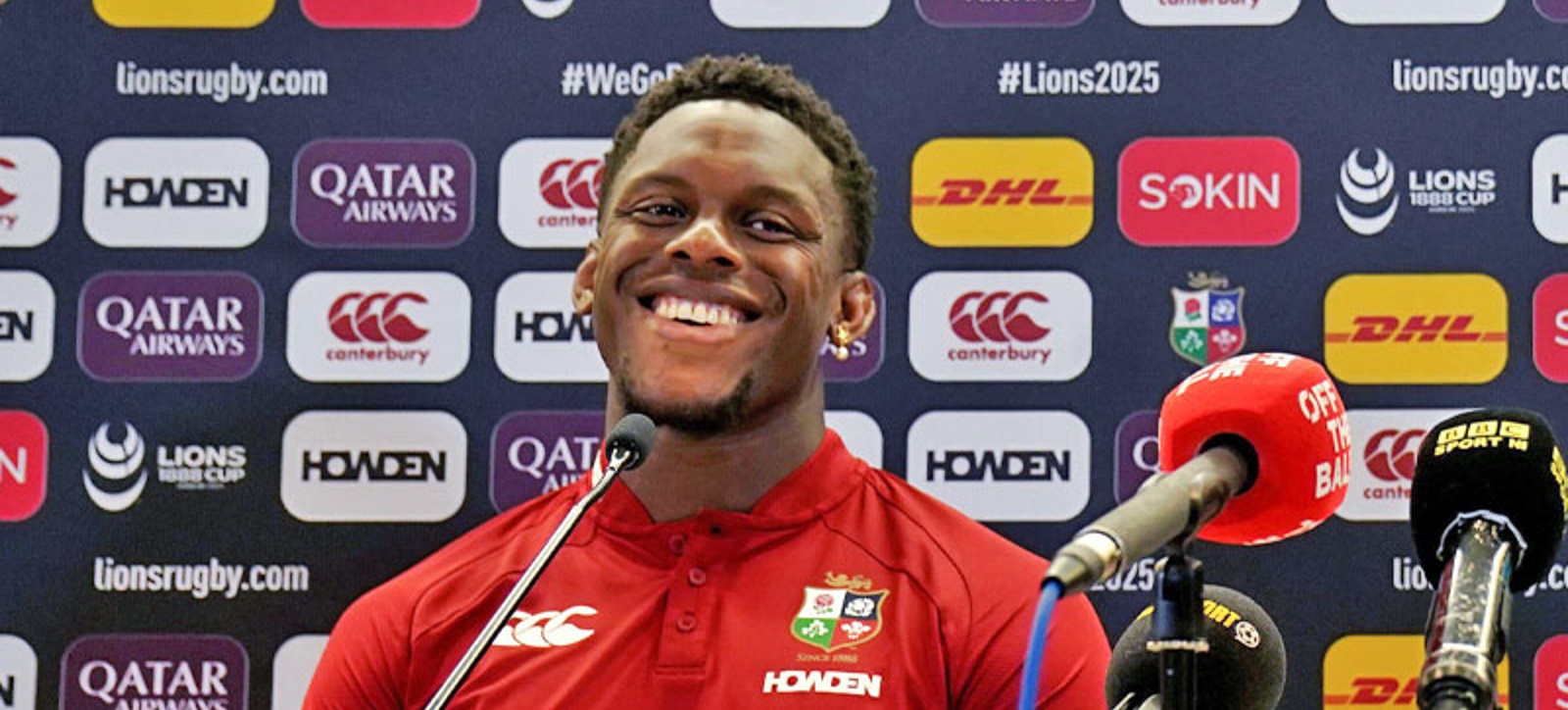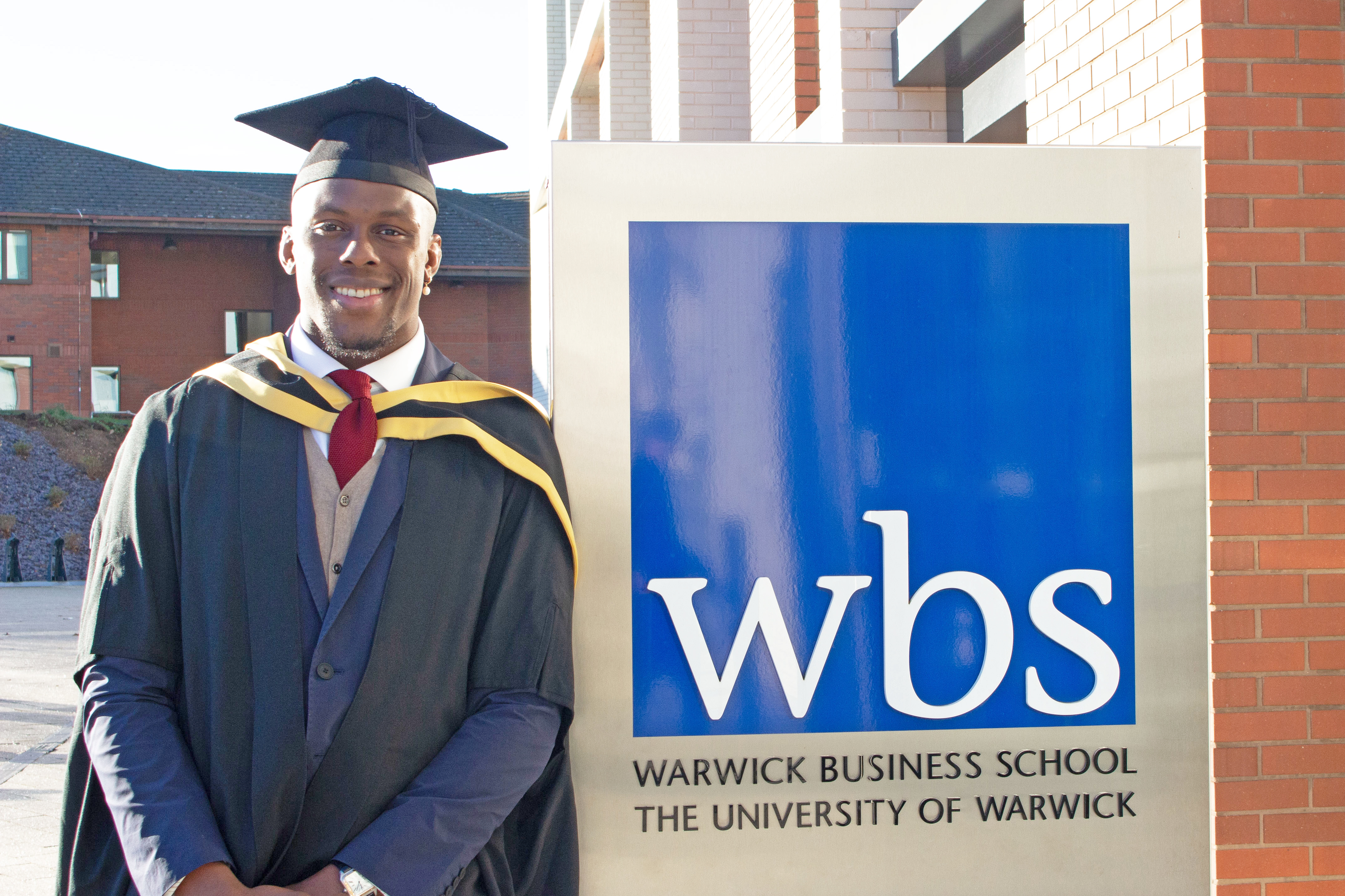
Sense of pride: WBS alum and British Lions captain Maro Itoje has built his success on his core values
When Eddie Jones published a book on leadership as head coach of the England men’s rugby union team, one passage drew more attention than any other.
In typically outspoken style, Jones cast doubt on whether Itoje would ever be England captain, suggesting that he was too “inward-looking” to influence people off the pitch.
It seemed like a bold statement. Itoje had already established himself as a mainstay of the national team and captained England’s Under-20s team to World Cup victory.
And four years later, Itoje has proved his former coach wrong. After honing his leadership skills by completing a Global Online MBA at Warwick Business School, Itoje became England captain and has now led the British Lions to a series victory in Australia.
How Maro Itoje changed the England team
His leadership style certainly differs from that of Jones – and his predecessors as captain.
Rugby correspondents have devoted many column inches to the subject, highlighting how Itoje has established a new culture within the dressing room.
Gone are the colourful language and the raised voices. They have been replaced by a calmer, more considered approach that provides clarity and cohesion. In particular, he has been praised for his emotional intelligence and the way he has integrated talented young players into the squad and encouraged them to contribute.
He has also shown the confidence to share his values, openly discussing issues such as racism and social mobility in a way many players have tended to avoid.
The quiet influence, unshakable confidence, and strong sense of shared performance offers a model for how leaders in other organisations can foster an inclusive culture and a sense of belonging within uncompromising standards.
Why change your company culture
Company culture amounts to the shared values and practices that shape how people within an organisation behave.
There are many reasons to change company culture. It may be to improve productivity or performance, to increase morale and reduce staff turnover, or to enhance innovation.
It can also foster inclusivity, as Maro Itoje has done with England and the British Lions. However, changing company culture is not something that happens overnight.
It is built over time through consistency, trust, and daily leadership. Here are six strategies to change company culture, all inspired by Itoje’s approach.
1 Lead by example to drive change
Culture is shaped less by policies than by the everyday actions of leaders. Employees often notice and mirror how leaders behave, not just what they say.
That’s why consistent role-modelling is essential. For example, Maro Itoje does not demand respect; he earns it by consistently behaving in ways that reflect his standards.
His work-rate in the gym and his commitment to training are second to none. As a result, he remains a player capable of delivering high-quality performances for the full 80 minutes.
This approach extends to the way he supports his teammates, devotes time and effort to integrating young players into the squad, and mentors them without ego.
He embodies the team’s values, not just in press conferences or big matches, but in all areas of their work.
The same principle applies in business. Company culture is not a project with a start or end date. It is part of how the team operates.
Embed it in the fabric of the organisation – from how meetings are structured to how you provide staff with feedback, recognition, and development opportunities.
2 Embed inclusivity in everyday routines
Just as true inclusion isn’t a project with an expiry date, neither is it reserved for special occasions. It should be embedded in routine decisions, conversations, and team dynamics. It’s how the work gets done.
Micro-behaviours that demonstrate inclusive values – like taking turns, inviting quieter voices to speak, and intentional listening – send a strong message about what’s important.
This can create a sense of psychological safety, even in high-pressure environments.
For example, one of Itoje’s first innovations when he took the captaincy was to introduce a weekly presentation called ‘My Rose’, where a player of member of the backroom team gives a short talk about themselves to the group.
Sharing their stories, their highlights, and their hardships helped to forge strong bonds between teammates.
There are numerous things you can do to make inclusivity a visible part of daily behaviour. Greet new hires, acknowledging the contributions of different team members, and call out exclusion when it happens.
You can also audit routine practices like project staffing to ensure diversity is integrated, not just invited. Setting clear ground rules for respectful dialogue, rotating roles, and reviewing participation on a regular basis can help your team, and its individual members, to thrive.
3 Create space for an open dialogue
A coherent culture and sense of psychological safety is reinforced by creating an environment where everyone feels safe and free to contribute and respectfully challenge each other without fear of resentment or reprisals.
After all, dialogue fuels innovation and builds trust.
For example, Itoje has moved away from the traditional approach to pre-match talks in the dressing room, which often feature chest-thumping, shouting, and swearing.
Instead, he speaks in calm and measured tones, holding the floor by commanding the respect of his teammates rather than attempting to dominate them.
On the field, he is known for his composure and his thoughtful presence. He creates space for others to contribute, especially figures like Jamie George, who often joins the action as a substitute later in the game and brings a fresh perspective from the side lines.
However, he also encourages emerging voices from younger, less experienced teammates, which helps the team to remain cohesive and responsive under pressure.
Business leaders can mirror his approach by inviting input in meetings, respecting everyone’s thoughts, and creating moments for reflection.
Begin team meetings with a structured moment where everyone, regardless of their role, can share a thought or an update.

To set the tone, the leader can start by sharing a personal challenge or a lesson they have learned during the last week, signalling that honesty and imperfection are welcome.
This fosters a sense of openness and reduces the fear of “not knowing”, helping to shift the culture from a guarded to a more collaborative approach.
However, it is still worth using anonymous tools to collect feedback that might otherwise go unspoken because staff lack the confidence to share it publicly.
4 Anchor culture in shared language and values
Company culture thrives when everyone understands what the organisation stands for and sees these beliefs reflected in daily actions.
These values guide a firm’s priorities, its decisions, and the behaviour of its employees. But they only work when they are consistent and visible.
Itoje does not model the culture of the England and British Lions rugby teams through slogans, but by grounding his leadership in a sense of purpose.
He leads with integrity, whether he is uniting his team, representing them in interviews, or advocating for social issues. That is reflected in his tone and choice of words.
Organisations can learn from this by embedding their own values into how they hire, evaluate, and communicate with staff. They should be part of performance discussions, strategic decisions, and the language of everyday conversations.
A practical way to do this is to regularly link your decisions back to your stated values.
5 Ensure rewards align with your values
What gets rewarded gets repeated. If inclusion is a true cultural goal, it must be reflected in how success is measured, not just performance or output.
Itoje’s impact is not only in his physical game, but in how he lifts the team.
At his first training camp as captain, he promised his teammates he would give them everything, but in return he needed more from them – individually and collectively – to improve their results as a team.
That is part of why he is so effective as a leader. He is driven by collective growth, not just individual success. He celebrates others, inspiring trust, and building unity.
Organisations should follow suit. Celebrate individuals who normally operate outside the limelight, but who support others, create inclusive spaces, or lead from behind.
The contributions of these team players are often invisible unless leaders intentionally spotlight them.
A good way to do this is to build mechanisms for recognising inclusive behaviour, mentoring, and bridge building across teams into performance reviews and leadership assessments.
6 Empower middle managers to lead change
Middle managers are the link between strategic vision and daily practice. As such, they play a critical role in embedding culture.
Without their buy-in and capability, culture change doesn’t scale. Effective leaders, like Itoje, recognise this.
Itoje does not seek to shine from the top. He empowers those around him and elevates them alongside him.
He made former captain Jamie George and teammate Ellis Genge his leadership team, including them in regular meetings with head coach Steve Borthwick.
He is happy to defer to them to share key messages, especially when it calls for a different style of delivery to his own more measured approach.
That peer-based leadership drives high performance and trust. However, middle managers must be equipped with the coaching skills, the tools to handle team conflict, and the autonomy to adapt the most suitable practices in any given situation.
Offer dedicate training and support for those middle managers on how to provide inclusive leadership, create psychological safety, and give constructive feedback. Then ensure their have the authority to drive inclusive practices and make them accountable for doing so.
The impact of successful culture change
Changing company culture is not a quick fix. It’s a strategic investment in the future of your organisation and the first step is often the hardest to take.
But as Itoje’s journey shows, it doesn’t have to be complex.
And when it’s done successfully, it can unlock a range of benefits from higher employee engagement to greater productivity and more innovation.
The ripple effect can strengthen your brand from the inside out, enhancing your appeal for customers and other stakeholders.
Equally, creating an inclusive culture isn’t just the right thing to do. It provides your organisation with a competitive advantage by helping to attract and retain talent, foster creativity, and build resilience.
But it doesn’t happen by accident. It begins at the top and it grows through small, everyday moments. Be consistent and your actions will set the tone for your entire organisation.
Further reading:
Six ways to increase inclusivity as a leader
What motivates people to become a leader
Five steps to harness adaptive leadership in turbulent times
How to build a more ethical team
Dimitrios Spyridonidis is Professor of Leadership and Innovation and course director for the Accelerator MBA (London), The Warwick Leadership Programme, and the executive education programme The Strategic Mindset of Leadership.
Aikaterini Grimani is Assistant Professor of Behavioural Science at Warwick Business School. Her research includes the behavioural patterns of successful leaders.
Take your leadership skills to the next level and renew your sense of purpose with the Warwick Leadership Programme at Warwick Business School.
Discover more about Leadership. Receive our Core Insights newsletter via email or LinkedIn.




 X
X Facebook
Facebook LinkedIn
LinkedIn YouTube
YouTube Instagram
Instagram Tiktok
Tiktok